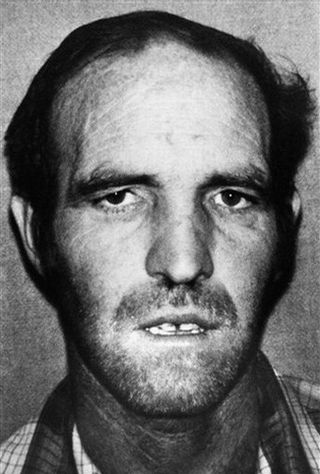Footnotes
Related Research Articles

Jacksonville is a city located on the Atlantic coast of northeastern Florida, the most populous city proper in the state and the largest city by area in the contiguous United States as of 2020. It is the seat of Duval County, with which the city government consolidated in 1968.

Arson is the crime of willfully and deliberately setting fire to or charring property. Although the act of arson typically involves buildings, the term can also refer to the intentional burning of other things, such as motor vehicles, watercraft, or forests. The crime is typically classified as a felony, with instances involving a greater degree of risk to human life or property carrying a stricter penalty. Arson which results in death can be further prosecuted as manslaughter or murder. A common motive for arson is to commit insurance fraud. In such cases, a person destroys their own property by burning it and then lies about the cause in order to collect against their insurance policy.

Habitat for Humanity International (HFHI), generally referred to as Habitat for Humanity or Habitat, is a U.S. non-governmental, and nonprofit organization which seeks to build affordable housing. It was founded in 1976 by couple Millard and Linda Fuller. The international operational headquarters are located in Americus, Georgia, United States, with the administrative headquarters located in Atlanta. As of 2023, Habitat for Humanity operates in more than 70 countries.

Cameron Todd Willingham was a possibly innocent American man who was convicted and executed for the murder of his three young children by arson at the family home in Corsicana, Texas, on December 23, 1991. Since Willingham's 2004 execution, significant controversy has arisen over the legitimacy of the guilty verdict and the interpretation of the evidence that was used to convict him of arson and murder.

Ottis Elwood Toole was an American serial killer who was convicted of six counts of murder. Like his companion Henry Lee Lucas, Toole made confessions which resulted in murder convictions, and which he later recanted. The discrediting of the case against Lucas for crimes for which Toole had offered corroborating statements created doubts as to whether either was a genuine serial killer or, as Hugh Aynesworth suggested, both were merely compliant interviewees whom police used to clear unsolved murders from the books.
The wick effect is the partial or total destruction of a human body by fire, when the clothing of the victim soaks up melted human fat and acts like the wick of a candle. The wick effect is a phenomenon that is found to occur under certain conditions, and has been thoroughly observed.

The Great Fire of 1901 was a conflagration that occurred in Jacksonville, Florida on May 3, 1901. It was one of the worst disasters in Florida history and the third largest urban fire in the U.S., next to the Great Chicago Fire, and the 1906 San Francisco fire.

St Barnabas' Anglican Church, Broadway, is an Anglican church in the Diocese of Sydney, New South Wales, Australia. The church is located on Broadway, near the University of Sydney and University of Technology in the Sydney suburb of Ultimo.

Mevo Modi'im, officially Me'or Modi'im, is a moshav in central Israel. It is also known as the Carlebach Moshav. Located north-west of Modi'in on Highway 443, it falls under the jurisdiction of Hevel Modi'in Regional Council. In 2021 it had a population of 248. In 2019, a fire destroyed most of Mevo Modi'im and it is currently in the process of reconstruction and expansion.
The Sudbury Steelworkers Hall was a historic labour union hall in Sudbury, Ontario, which was destroyed by a fire on September 19, 2008.
Lime Street may refer to:
Jacksonville, Florida is served by local media, as well as regional and national media. As of 2017, Jacksonville is ranked as the 42nd largest television media market in the United States, with 700,890 homes. Radio and television broadcasts are governed by the FCC.
The Glendale Police Department responds to and records criminal acts in Glendale, California. Despite historic gang activity in the city that has decreased in frequency since the 1990s, as well as several incidents of arson, a 2022 report ranked Glendale as the fifth safest city in the United States.

Detection of fire accelerants is the process that a fire investigator uses to determine if fire accelerants were used at a fire scene. This process involves a combination of both field work and laboratory analysis by fire investigators and chemists.
The 1978 Holiday Inn fire broke out at a Holiday Inn hotel located at 1525 West Ridge Road in the town of Greece, New York, United States, on November 26, 1978. The fire was considered notable enough by the National Fire Protection Association (NFPA) and the Center for Fire Research to document the fire in their 1979 publications. In the end, ten people were killed and 34 injured; seven of the fatalities were Canadian nationals. In 2008, the NFPA listed the 1978 Holiday Inn fire as one of only three dozen or so fires which killed ten or more people in the U.S. between 1934 and 2006.

Debora Green is an American physician who pleaded no contest to setting a 1995 fire which burned down her family's home and killed two of her children, and to poisoning her husband with ricin with the intention of causing his death. The case was sensational, and covered heavily by news media, especially in the Kansas–Missouri area, where the crimes occurred. Though Green has petitioned for a new trial twice in recent years, her requests have not been successful.

The Florida Star is a weekly newspaper in Jacksonville, Florida. Founded in 1951 to cater to Jacksonville's African American community, it is the oldest African-American newspaper in Northeast Florida.

In November 2016, a wave of fires spread across Israel from south of the Beersheva region to the north, in Nahariya. Some of the fires occurred naturally; others were arson attacks. On 28 November, after 8 days, the firefighting services announced that the emergency condition was over. Firefighters fought 1,773 fires, at least 39 were reported as major fires that required at least ten crews or more. The largest fire occurred in Haifa, where 527 apartments were destroyed among 77 buildings, leaving 1,600 people homeless. 75,000 residents, about a quarter of the city's population, were evacuated from 11 neighborhoods. Other major fires occurred in Zikhron Ya'akov and in the Jerusalem area, as well as smaller fires all across Israel and the West Bank. Israel's Nature and Parks Authority reported that more than 20,000 dunams of forests, brushland and open space were burnt, the largest amount since the Mount Carmel forest fire (2010).

John Michael Phillips is an American lawyer, consumer and civil rights advocate, and legal commentator. He is licensed to practice law in Florida, New York, Georgia, Alabama, Texas, Oklahoma, Illinois and Washington, DC. Phillips has been lead counsel in numerous nationally reported cases. He successfully represented Lucy McBath and Ron Davis after the shooting of Jordan Davis in Jacksonville, Florida. He prevailed as lead counsel for Omarosa Manigault Newman in litigation filed against her by Donald J. Trump for President, Inc. As a result, the Campaign was assessed Phillips’s legal fees and costs, totaling over $1.3 Million and agreed to invalidate all of the Campaign's NDAs. He also is lead counsel for Joseph Maldonado-Passage, also known as Joe Exotic, and is featured in four episodes of the second season of the Netflix show Tiger King.
References
- ↑ Folio Weekly staff 2010, p. 16.
- ↑ Starr, Douglas. "Spark of Truth: Can Science Bring Justice to Arson Trials?". Discover Magazine. Retrieved January 11, 2012.
- ↑ "527 Lime Street". Criminal . March 6, 2020.
- ↑ Folio Weekly staff 2010, p. 15.
- ↑ "Investigating Arson Cases". WestLegalEdcenter. Thomson Reuters. Retrieved August 17, 2020.
- 1 2 3 4 Hansen, Mark (December 2015). "Badly burned: long-held beliefs about arson science have been debunked after decades of misuse and scores of wrongful convictions". ABA Journal. American Bar Association. 101 (12): 36. Retrieved May 29, 2020– via Gale.
- 1 2 Lentini 1992, p. 2.
- ↑ Russell 2006, p. 42.
- ↑ Lentini 2010, p. 1.
- ↑ "Home". firescientist.com.
- ↑ R v. OMID, Arnesa, [2012 QCA 363], 34( Supreme Court of Queensland 19 December 2012).
Works cited
- Folio Weekly staff (2010). "Nightmare on Lime Street: How a Ghastly Jacksonville Fire Forever Changed Arson Science in America" (PDF). Folio Weekly (15). Archived from the original (PDF) on March 6, 2020. Retrieved January 11, 2012.
- Lentini, John J. (1992). "The Lime Street Fire: Another Perspective" (PDF). Fire Scientist. Retrieved January 11, 2012.
- Lentini, John J. (2010). "Fire Expert: How I Nearly an Sent an Innocent Man to the Electric Chair". ABC. Retrieved January 11, 2012.
- Russell, Sue (2006). "Down in Flames: 'Rock Solid' Evidence for Arson Turns Out to be Anything But". New Scientist. Retrieved January 11, 2012.
General references
- Grann, David. (September 7, 2009). "Trial By Fire". The New Yorker. Retrieved January 12, 2012.